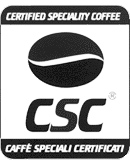TTAB Sustains 2(e)(1) Opposition to "CERTIFIED SPECIALITY COFFEE"
Two coffee associations ground their way through a Section 2(e)(1) opposition, with Opposer handily winning this battle of the beans. Opposer SCAA successfully blocked registration of the mark CERTIFIED SPECIALITY COFFEE for "high quality and estate coffee" (CERTIFIED and COFFEE disclaimed), on mere descriptiveness grounds. Specialty Coffee Ass'n of America, Inc. v. CSC-Italia Associazione Caffe Speciali Certificati, Opposition No. 91156520 (February 23, 2005) [not citable].

The Board cited McCarthy on Trademarks and Unfair Competition, Section 11:66, in applying the following four tests for "determining descriptive-suggestive distinction:"
(1) the dictionary definition test -- as a whole, dictionary evidence indicated that "speciality" and "specialty," are "interchangeable," especially when combined with the word "coffee," and that the term "specialty coffee" is "at the very least descriptive for high quality and estate coffee."
(2) the imagination test -- the Board found the applied-for mark to be "a fairly straightforward combination of words that creates no double entendre, no incongruity, no contradictory or odd meanings, no play on words, etc."
(3) competitors' need test -- Opposer CSAA is "the largest trade group in the world representing those in all facets of the high-quality coffee market from growers to office place coffee vendors." As such, it "might be uniquely positioned to 'certify' a variety of items connected with the sale of coffee beans." In fact, CSAA uses other terms that include the word CERTIFIED, and has plans to certify "specialty/speciality coffees." The Board found that Applicant's competitors and others will have a need to use the applied-for term.
(4) competitors' use test -- Although Applicant may be the only entity using the term at issue, that fact does not justify registration.
In sum, "[a]ll the evidence of record demonstrates that 'specialty coffee' is a readily recognized term." The word CERTIFIED means "'to guarantee as meeting a standard,' and is descriptive of the fact that 'applicant's coffee meets a standard.'" Therefore, CERTIFIED SPECIALITY COFFEE "is an apt term to describe applicant's goods," and is merely descriptive under Section 2(e)(1).

One could say that, once Applicant CSC-Italia's arguments percolated through the TTAB's four descriptiveness tests, what was left was a feeble brew that the Board found unpalatable.
Punning aside, the TTABlog notes that the Board seldom applies this four-test approach in mere descriptiveness cases -- or at least it seldom articulates its analysis in this way. Here, the Board adopted Applicant CSC-Italia's approach to the issue, and its approach does provide some helpful structure to the analysis.
Text ©John L. Welch 2005. All Rights Reserved.




0 Comments:
Post a Comment
<< Home